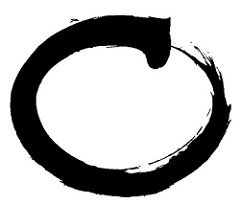Under heaven all can see beauty as beauty only because there is ugliness.
All can know good as good only because there is evil.
Therefore having and not having arise together.
Difficult and easy complement each other.
Long and short contrast each other:
High and low rest upon each other;
Voice and sound harmonize each other;
Front and back follow one another.
Therefore the sage goes about doing nothing, teaching no-talking.
The ten thousand things rise and fall without cease,
Creating, yet not possessing.
Working, yet not taking credit.
Work is done, then forgotten.
Therefore it lasts forever.
Tao-Te-Ching — Translated by Gia Fu Feng & Jane English
The Tao Te Ching was written in China roughly 2,500 years ago at about the same time when Buddha expounded the Dharma in India and Pythagoras taught in Greece.
The Tao Te Ching is probably the most influential Chinese book of all times. Its 81 chapters have been translated into English more times than any other Chinese document.
The Tao Te Ching provides the basis for the philosophical school of Taoism, which is an important pillar of Chinese thought. Taoism teaches that there is one undivided truth at the root of all things.
It literally means: = tao (the way) = te (strength/virtue) = ching (scripture)
Tao te Ching
Can you remain unmoving until the right action arises by itself?
He who knows others is wise, He who knows himself is enlightened.
The more you know the less you understand.




